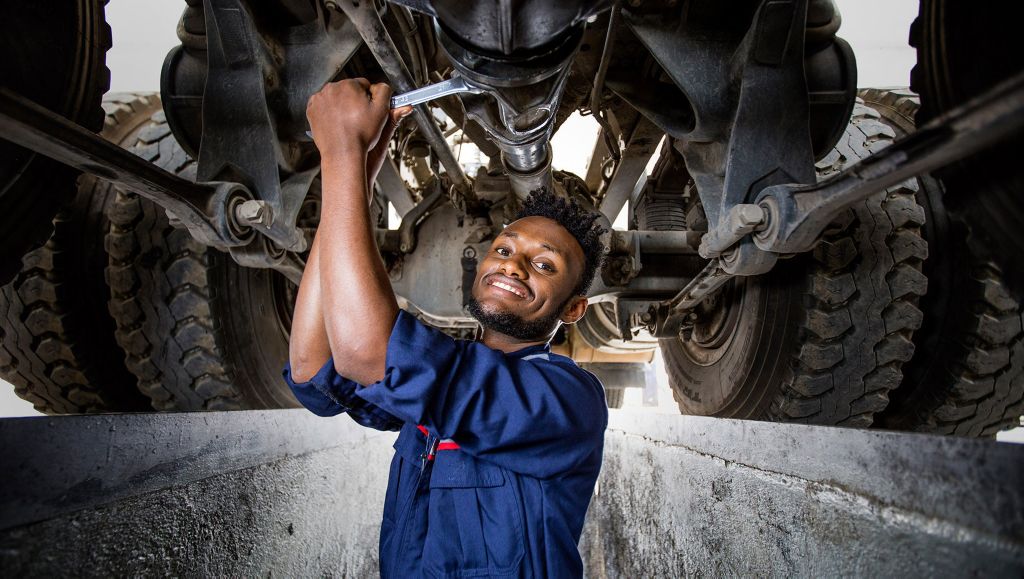The hands-on approach


Fasil Asefa is determined to learn everything there is to know about Volvo trucks so that maybe one day he can open his own business. In Ethiopia, skilled technicians like him are hard to find. Two years ago, when Fasil Asefa joined the workshop just outside Addis Ababa, he knew he had landed a dream job.
The dealership is run by Equatorial Business Group (EBG) which imports Volvo Trucks and Volvo Construction Equipment to Ethiopia. This is the place to be for someone wishing to learn as much as possible about how to service trucks and construction machines. “I really like working here, it’s exciting! Having senior colleagues around makes it easier and creates a good working environment,” Fasil Asefa says.
The workplace is huge, with two office buildings and several workshops and display rooms. A total of 66 technicians work here, specialising in either construction equipment or trucks. So far, Fasil Asefa, 23, is a junior technician, but he has set high goals for himself: “I want to be the best professional technician
possible and, in the future, I would like to open my own workshop! The best thing about the automotive industry is that there are so many inventions and so much to learn. I always try to read about new technologies, I really enjoy that,” he says. Fasil Asefa likes the friendly atmosphere in the workplace and the support given by his employer, by providing transportation to and from work for example.
Since he lives in another part of Addis Ababa, this is important. Many of the other technicians are also quite young and some he knows from the Selam Technical & Vocational Centre, where he got his training. The school works in close collaboration with the Volvo Group and its dealers.
A model school for technicians
For a first-time visitor to the Selam Technical & Vocational Centre, it is easy to forget that this is a school. The clean, spacious workshop looks more like what you would expect of a top-notch dealership anywhere in the world, with neatly parked trucks waiting to be serviced. The difference is that the groups of technicians in blue overalls standing around are in fact students.
From day one of their training, they get to see real trucks and construction machines up close and, every time a new topic is introduced, they can immediately go and have a look for themselves to see what it really looks like.
Today, teacher Hanna Nigussie has gathered a group of students around a modern Volvo D13 engine for a class on valves and injectors. She feels that having this type of equipment creates a totally different learning experience compared to other schools in Ethiopia, where a lack of resources often forces the teaching to be much more theoretical. “In fact, I studied here myself and the reason I joined was because I would get a chance to work on heavy-duty trucks and machines,” Hanna Nigussie says.
The Selam Technical & Vocational Centre is an offspring of the local orphanage, Selam Children’s Village, and offers a range of different training programmes for young people, many of them from the orphanage. Since 2012 they have run Ethiopia’s first state-of-the-art vocational training for technicians specialising in heavyduty vehicles.
The programme was made possible by a collaboration between the school, the United Nations Industrial Development Organization (UNIDO), the Swedish development authority, Sida, and the Volvo Group, with Volvo Construction Equipment initially playing the lead role.
Currently, the Volvo Group is involved in three programmes to train technicians, in Ethiopia, Morocco and Zambia. In addition, a school for commercial drivers has just been established in Ethiopia and another will be launched in Morocco later this year.
Read about School for truck drivers to improve road safety in Morocco